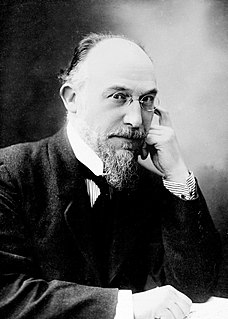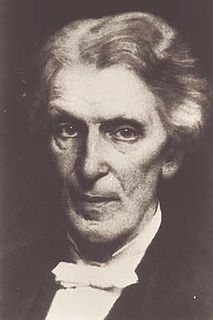A Quote by Erik Satie
We should have a music of our own - if possible, without any Sauerkraut.
Quote Topics
Related Quotes
In truth a clear-headed physicalist shouldn't be thinking any of these dualist thoughts. If pains are one and the same as C-fibres firing, then there really isn't any possibility of having 'one' without the 'other'. Once you properly appreciates physicalism, this dissociation should cease to appear possible - C-fibres with pains should strike you as no more possible than squares without rectangles.
Because of the dog's joyfulness, our own is increased. It is no small gift. It is not the least reason why we should honor as well as love the dog of our own life, and the dog down the street, and all the dogs not yet born. What would the world be like without music or rivers or the green and tender grass? What would this world be like without dogs?
We will not submit to have our own money taken out of our pockets without our consent; because if any man or any set of men take from us without our consent or that of our representatives one shilling in the pound we have not security for the remaining nineteen. We owe to our mother country the duty of subjects but will not pay her the submission of slaves.
If it were possible to live without causing harm to any living being at all, then indeed we might well choose not to eat carrots or other vegetables. But that is not possible - merely by being alive, we necessarily cause harm to many, many beings: we step on them inadvertently, we breathe them in without noticing, we kill them when we brush our teeth or wash our bodies, etc.
Nature never makes excellent things, for mean or no uses: and it is hardly to be conceived, that our infinitely wise Creator, should make so admirable a Faculty, as the power of Thinking, that Faculty which comes nearest the Excellency of his own incomprehensible Being, to be so idlely and uselesly employ'd, at least 1/4 part of its time here, as to think constantly, without remembering any of those Thoughts, without doing any good to it self or others, or being anyway useful to any other part of Creation.
There is no enemy can hurt us but by our own hands. Satan could not hurt us, if our own corruption betrayed us not. Afflictions cannot hurt us without our own impatience. Temptations cannot hurt us, without our own yieldance. Death could not hurt us, without the sting of our own sins. Sins could not hurt us, without our own impenitence.
In order to settle down in the quiet of our own being we must learn to be detached from the results of our own activity. We must be content to live without watching ourselves live, to work with expecting immediate reward, to love without an instant satisfaction, and to exist without any special recognition. It is only when we are detached from ourselves that we can be at peace with ourselves.
It is possible to enjoy the Mozart concerto without being able to play the clarinet. In fact, you can learn to be an expert connoisseur of music without being able to play a note on any instrument. Of course, music would come to a halt if nobody ever learned to play it. But if everybody grew up thinking that music was synonymous with playing it, think how relatively impoverished many lives would be. Couldn't we learn to think of science in the same way?








































